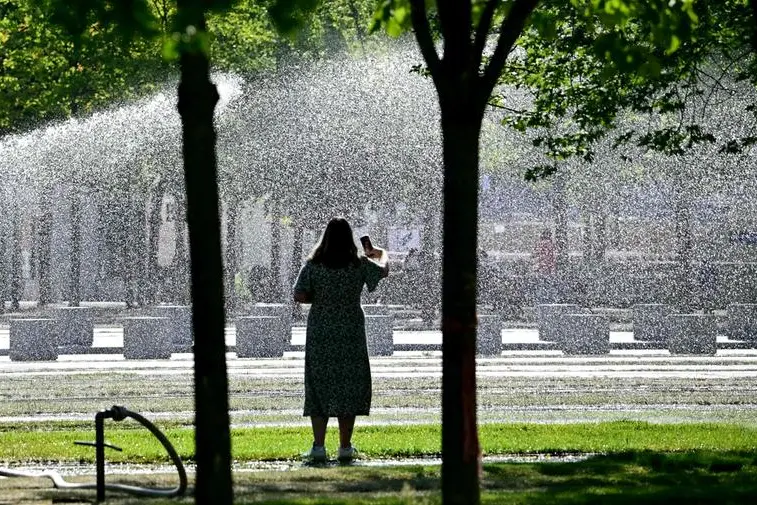PHOTO
“Our students and staff can no longer depend on a dying municipality,” says the vice-chancellor.
Students at Rhodes University’s Starling House residence at the Gilbert Street campus say they have to go outside to water tanks in the yard to fetch water to flush toilets and bath and do laundry, because taps run dry frequently in Makhanda. Photo: Thamsanqa Mbovane
We are pulling out of the dying Makana municipality,” Professor Sizwe Mabizela, Rhodes University vice-chancellor, told GroundUp on Monday.
The institution is seriously considering constructing its own water treatment plant to mitigate the ongoing water crisis.
This comes days after the university was forced to call off lectures on Friday, 30 August, due to severe ongoing water outages across the town. The Makana municipality has been gripped by extreme water troubles for 12 years now.
The town is home to about 8,700 Rhodes students who share the struggles faced by more than 97,000 households under the Makana Local Municipality.
The Department of Water and Sanitation approved the James Kleynhans upgrade in 2015, with a 2018 completion date, which has been extended for almost six years.
According to Mabizela, the university appointed a task team last year to look into the possibility of being self-reliant for water. He said the team’s report recommended that it tap into the underground water sources and construct its own water treatment plant.
“As ordinary citizens, we are entitled to basic services such as water and sanitation … We contribute the biggest share of the GDP in this town. Our biggest threat is the failure of the municipality to fulfill its mandate,” he said.
“By mid-2025 we will have our own water treatment plant.”
Meanwhile, some of the 98 students living in Starling House residence at the Gilbert Street campus, said that they often have to go outside to water tanks in the yard to fetch water to flush toilets and to bath and do their laundry.
“It’s humiliating,” said a student who refused to be named.
Municipal manager Pumelelo Kate said the majority of households in low-lying areas had started receiving water on Monday and the system would improve in other areas as well.
Responding to Rhodes University’s plans to become self-reliant, Kate said, “We can only deal with that when Rhodes presents its plan to the municipality as to how they wish to mitigate the issue of water scarcity or lack of water in their area. That has not been presented to us officially, but I would expect that Rhodes will start to look around how best it will mitigate the situation.”
Kate acknowledged that it would have a knock-on impact on the municipality’s revenue should the university no longer rely on it for water.
All rights reserved. © 2022. Bizcommunity.com Provided by SyndiGate Media Inc. (Syndigate.info).




















